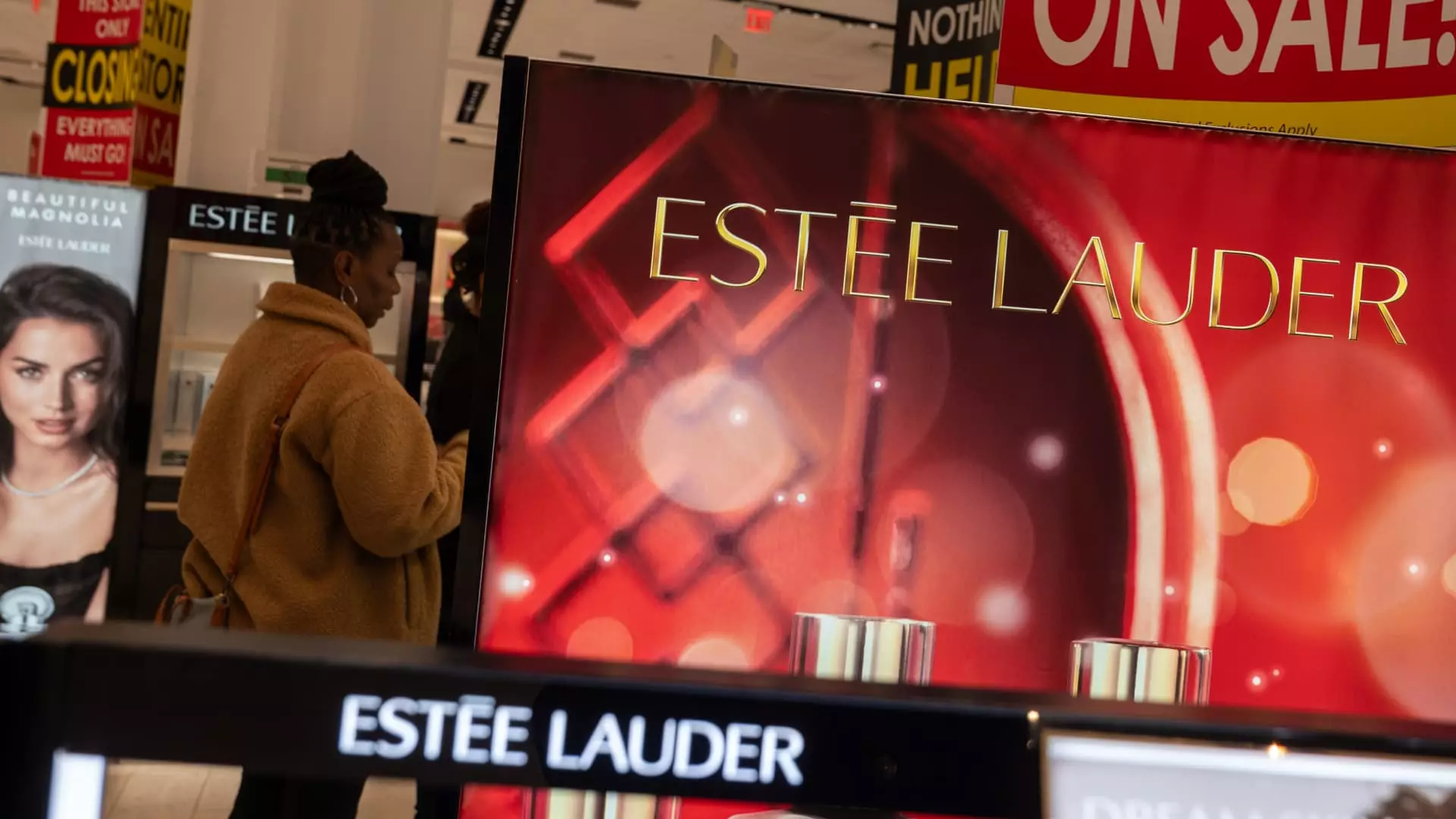This week, the beauty sector experienced a tumultuous period as leading companies faced significant stock declines, reflecting broader challenges within the market. Industry heavyweights like E.l.f. Beauty and Estée Lauder reported disheartening earnings that led to a reevaluation of their financial outlooks. E.l.f. Beauty, in particular, experienced its steepest weekly decline since 2018, plummeting nearly 29%. This sharp drop came after the company reported revenue that exceeded expectations, yet failed to live up to earnings per share estimates, prompting a downward revision of its full-year sales projections.
E.l.f. Beauty’s latest fiscal third-quarter results revealed an unsettling trend for the cosmetics brand. Although they reported higher revenue than anticipated, their adjust earnings did not meet industry expectations. The company adjusted its sales guidance significantly downwards, now estimating between $1.3 billion and $1.31 billion, a noticeable drop from its prior forecast. The CEO, Tarang Amin, highlighted an overall decline in the cosmetics sector, attributing the dip to the post-holiday slump and diminishing online engagement in beauty products. The negative sentiment surrounding E.l.f. Beauty’s performance led major analysts from firms like Morgan Stanley and UBS to downgrade their ratings, indicating a significant loss of confidence among investors.
Estée Lauder also faced a drastic fall in its stock price, decreasing by 22%, marking its worst weekly performance since November of the prior year. The company revealed its plans to eliminate between 5,800 and 7,000 jobs by the end of fiscal 2026, a reflective measure in response to a downturn in demand, especially in travel retail markets in Asia. Despite reporting stronger-than-expected revenue and earnings in its latest quarter, the overall message from CEO Stéphane de La Faverie was sobering. He candidly admitted that the company had lost its competitive agility, underscoring a failure to seize emerging growth opportunities within the dynamic beauty market.
Moreover, Ulta Beauty and Coty are not immune to the prevailing pressures. Both companies saw their shares decline by 9% and nearly 8%, respectively, with Ulta experiencing its most significant drop since April. Analysts are worried about potential repercussions as the beauty sector grapples with rising tariffs on imports, particularly following China’s announcement of tariffs on select U.S. goods in reaction to American tariffs on Chinese products. Given that E.l.f. Beauty manufactures a substantive majority of its products in China, the company expressed cautious relief that the tariffs imposed were lower than previously considered, which raises important questions about the future cost structure for many companies in the sector.
The recent downturn in beauty stocks highlights the volatile landscape faced by industry players as they navigate post-pandemic adjustments and shifting consumer behaviors. With shrinking profit margins, employment cuts, and market skepticism, beauty companies must strategically refocus to adapt to the evolving market if they hope to regain investor confidence and foster growth. As these brands embark on the journey toward recovery, the importance of agility, innovation, and consumer engagement cannot be overstated.

Leave a Reply